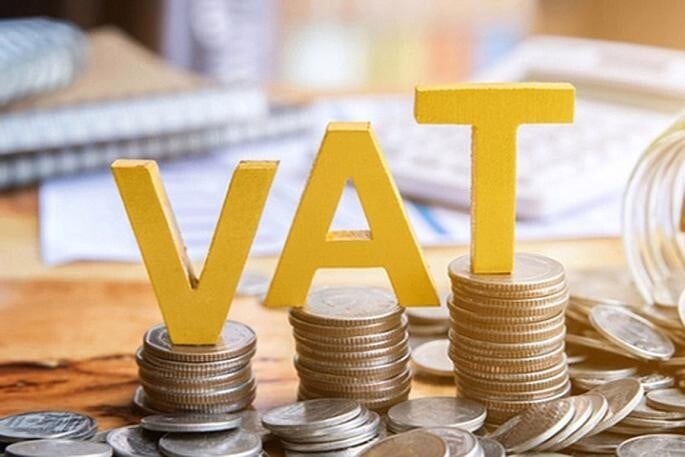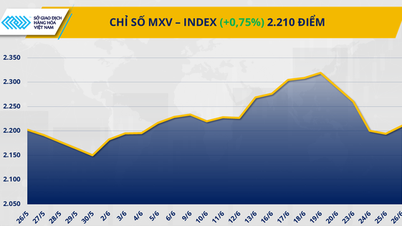The amended Law on Value Added Tax comes into effect.
Transactions under 20 million VND must also be paid without cash.
One of the most notable and far-reaching changes to the Law Value Added Tax The amendment requires non-cash payment documents for all purchases of goods and services worth less than VND20 million to qualify for input VAT deduction.
This is a bold move, reversing the old regulation (required only for invoices over 20 million VND), aiming to close loopholes in legalizing fake invoices for small transactions.

While it can create initial challenges for small businesses, business household individuals or traditional markets, but in the long term, standardizing payment methods will help these units build a clear financial history, making it easier to access official credit sources.
Business households have their tax threshold increased to 200 million VND/year.
Another highlight of the revised Law on Value Added Tax is the doubling of the threshold for revenue subject to value added tax and personal income tax for business households and individuals, from VND 100 million/year to VND 200 million/year (effective from January 1, 2026).
This is a practical support policy, demonstrating the State's sharing with the smallest economic units, helping them reduce the burden of taxes and administrative procedures, and have more resources for reinvestment and development.
In addition, the new law also reviews and adjusts the list of non-taxable objects, amends regulations on taxable prices for imported goods, and changes the tax rates of many groups of goods and services to better reflect the economic nature and consumption orientation of society.
Decentralization of tax management
In Decree 122/2025/ND-CP, the Ministry of Finance is assigned by the Government to perform the following State management tasks: Guiding taxpayers not to submit documents in tax declaration, tax payment, tax refund documents and other tax documents that state management agencies already have, based on the actual situation and information technology equipment conditions.
Instructions for tax declaration documents; types of taxes declared monthly, quarterly, annually, each time tax liability arises, and tax finalization declaration.
Instructions on the deadline for submitting tax declarations for agricultural land use tax; non-agricultural land use tax; land use fees; land and water surface rent; mineral exploitation right granting fees; water resource exploitation right granting fees; registration fees...
Declaring and paying taxes for business on e-commerce platforms
In the context of the booming digital economy, the new policy has paid special attention to tightening tax management in the field of e-commerce.
Decree 117/2025/ND-CP has introduced a breakthrough solution including tax deduction at source. This mechanism transfers the responsibility for declaring and paying taxes from millions of individual small-scale sellers to a small number of organizations managing e-commerce platforms (such as Shopee, Lazada, Tiki) and digital platforms with payment functions.
Specifically, as soon as a transaction is successfully confirmed and the customer makes payment, the platform will automatically calculate and deduct the percentage of value added tax and personal income tax payable before transferring the remaining amount to the seller.
The deduction rates are specified in detail: 1% VAT and 0.5% personal income tax (for resident individuals) for the sale of goods; 5% VAT and 2% personal income tax for services.
This mechanism not only ensures correct, full and timely collection for the State budget but also creates a fair playing field between online sellers and traditional stores that must fully fulfill their tax obligations.
As can be seen, the tax policy effective from July 2025 are not individual changes but a coherent, logical and long-term vision of reforms. Together, they create a new tax architecture that promises to take Vietnam’s financial management system to a new level – more transparent, more efficient and fairer, laying a solid foundation for sustainable development in the digital age.
Personal identification number replaces personal tax code
To effectively implement the above policies, especially in personal tax management, a revolution in taxpayer identification will take place.
In the spirit of Circular 86/2024/TT-BTC, the concept of personal tax codes will officially be phased out from July 1, 2025. Instead, the 12-digit personal identification number on the citizen identification card will become the only code used in all transactions, from tax declaration, tax payment to tax refund procedures. This is the key to building a synchronous and interconnected national database.
For citizens, this means maximum convenience, no more having to remember multiple codes, all procedures are simplified.
For tax authorities, this is an extremely powerful macro management tool. Linking tax data with population data, social insurance, land registration, bank accounts, etc. will allow authorities to perform big data analysis to identify tax risks and track tax evasion and fraud more effectively and accurately than ever before.
Source: https://baoquangninh.vn/tu-1-7-loat-chinh-sach-thue-thay-doi-ra-sao-3364114.html







![[Photo] Cuban artists bring "party" of classic excerpts from world ballet to Vietnam](https://vphoto.vietnam.vn/thumb/1200x675/vietnam/resource/IMAGE/2025/6/26/797945d5d20b4693bc3f245e69b6142c)






















![[Photo] General Secretary To Lam receives Australian Ambassador to Vietnam Gillian Bird](https://vphoto.vietnam.vn/thumb/1200x675/vietnam/resource/IMAGE/2025/6/26/ce86495a92b4465181604bfb79f257de)





































































Comment (0)